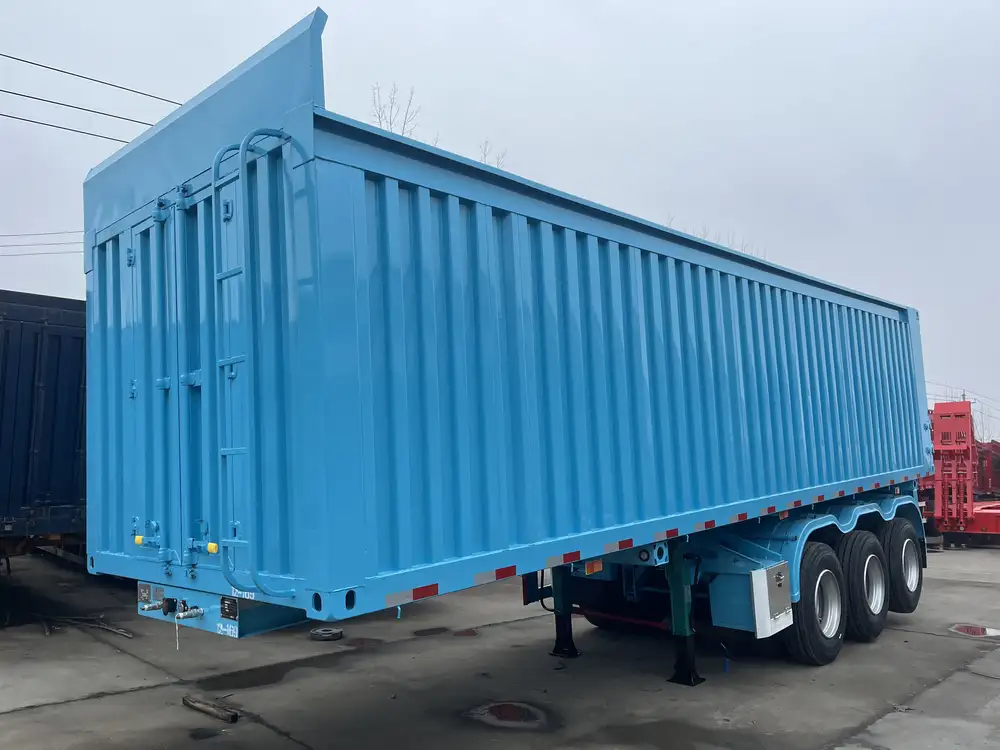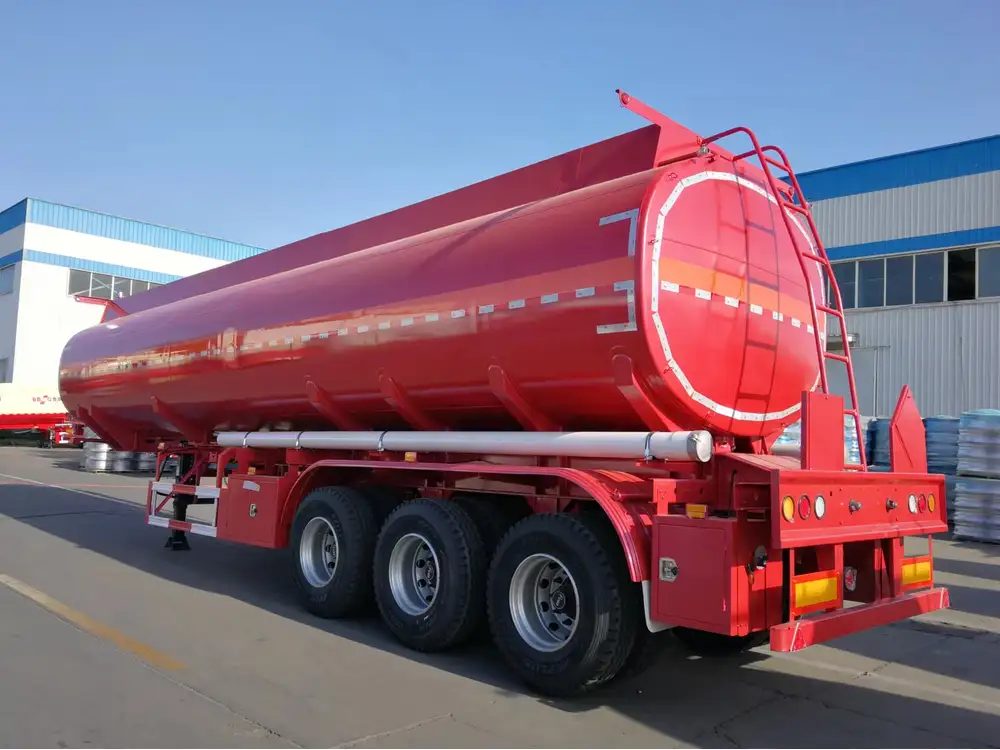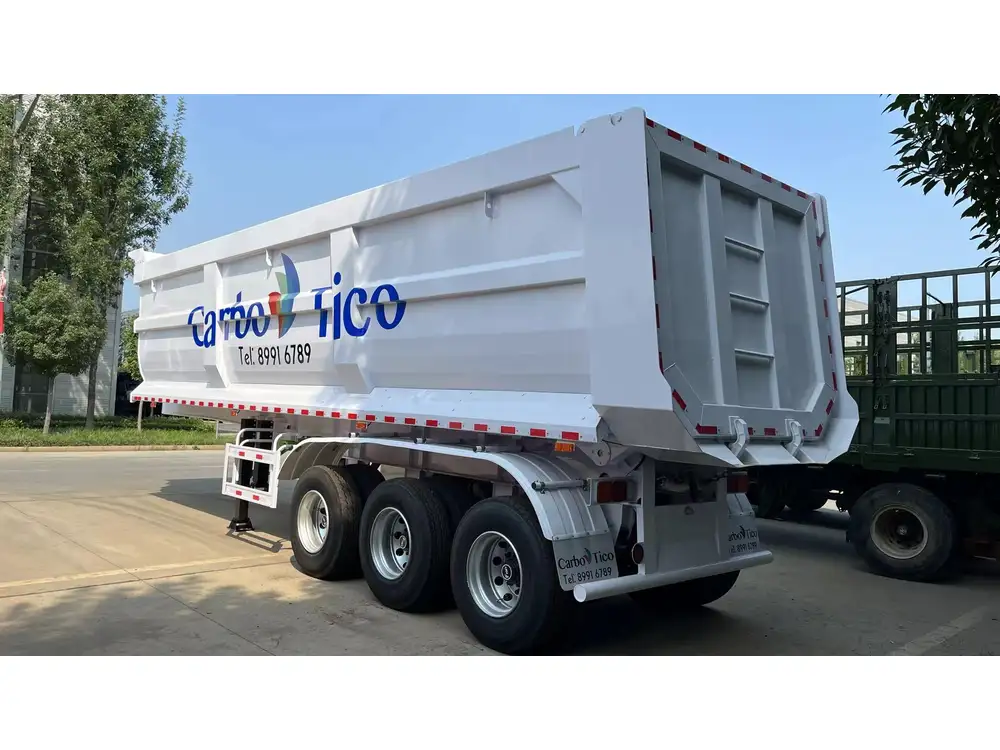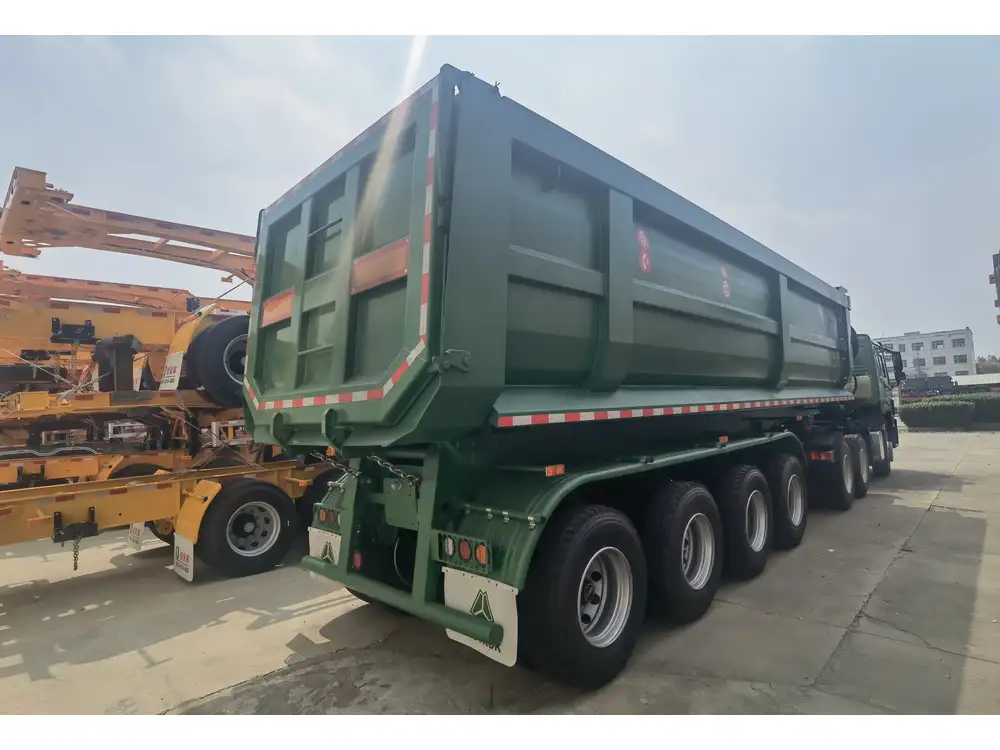What is a Skeletal Trailer?
A skeletal trailer is a specialized vehicle designed primarily for transporting shipping containers. Featuring a lightweight structure with a minimalist frame, it provides optimal versatility for containerized cargo. Typically, the body of the trailer consists of a skeletal frame, allowing for efficient loading and unloading of containers, which come in standardized sizes, such as 20-foot and 40-foot containers.
Key Features of Skeletal Trailers:
| Feature | Description |
|---|---|
| Lightweight Design | Maximizes payload capacity while remaining within weight limits. |
| Versatile Configuration | Compatible with multiple container sizes, enhancing operational efficiency. |
| Durable Materials | Constructed using high-strength steel or aluminum for longevity. |
| Easy Loading Mechanism | Designed for quick and safe loading/unloading processes. |

Factors Influencing Skeletal Trailer Prices
Skeletal trailer prices can vary significantly based on several factors. Understanding these factors can help businesses make an informed purchasing decision.
1. Material and Build Quality
The materials used in the construction of skeletal trailers significantly influence their price. Trailers made from high-strength steel offer durability but may come at a higher cost compared to those made from lighter, less durable materials. Aluminum, while lightweight and resistant to corrosion, tends to be more expensive due to the manufacturing process involved.
2. Size and Capacity
Skeletal trailers come in various sizes, primarily designed to accommodate different container lengths. Typically, trailers can be 20-foot or 40-foot long. The larger the trailer, the higher the potential price due to increased material usage and engineering requirements. Businesses need to assess their transportation needs before choosing a size that not only fits their budget but also serves their operational requirements.

3. Features and Customization
Often, manufacturers offer a range of customizable features, which can affect the overall price:
- Load Capacity: Increased load-bearing capacity usually results in a higher price.
- Axle Configuration: Additional axles can enhance stability and load distribution but come at a cost.
- Braking Systems: Advanced braking systems, such as ABS (Anti-lock Braking System), improve safety but add to the budget.
4. Manufacturer Reputation
The brand behind the skeletal trailer can also impact the price. Established manufacturers with a reputation for quality and reliability typically charge more. Investing in a well-known brand may result in better service and warranty options.
5. Market Demand and Economic Factors
The prices of skeletal trailers are also influenced by market demand and broader economic factors. When demand is high, prices tend to rise. Conversely, if the market becomes saturated, a decrease in prices may occur. Seasonal fluctuations in demand can also play a role—peak logistics seasons can drive prices up due to increased buying activity.

Average Price Range of Skeletal Trailers
Analyzing the market to understand the pricing structure of skeletal trailers is essential. Prices generally range significantly, with the following estimates reflecting the current landscape:
| Type of Skeletal Trailer | Estimated Price Range (USD) |
|---|---|
| Basic Skeletal Trailer | $15,000 – $25,000 |
| Mid-Range Models | $25,000 – $45,000 |
| High-End Custom Models | $45,000 – $70,000+ |
How to Choose the Right Skeletal Trailer
Choosing the right skeletal trailer involves evaluating various critical components. Understanding operational needs, budget constraints, and preferred specifications is vital.
1. Assessing Operational Needs
Consider what type of cargo will be primarily transported. Evaluate container sizes, weights, and loading/unloading processes. A trailer that suits your specific operational requirements can reduce inefficiencies.

2. Budget Considerations
Determine a realistic budget. Analyzing the total cost of ownership, which includes maintenance, insurance, and financing options, is essential to maintaining profitability.
3. Longevity and Resale Value
Investing in a durable skeletal trailer can significantly enhance longevity. High-quality trailers generally retain resale value better than lower-quality options. Investigate potential depreciation rates and resale market viability for different models.
Maintenance Tips for Skeletal Trailers
Regular maintenance is crucial in extending the lifespan of a skeletal trailer and ensuring operational safety. Here are some maintenance tips:
Regular Inspections
Frequent inspections can identify wear and tear early. Key areas to focus on include:- Frame and Chassis: Check for cracks, rust, or structural damage.
- Axles and Tires: Ensure tire pressure is correct and inspect tread conditions.
- Brakes and Electrical Systems: Functionality is non-negotiable when it comes to safety.
Lubrication
Keep moving parts well-lubricated to avoid wear and tear. Wheel bearings and suspension components are particularly sensitive to neglect.Cleaning
Regularly clean the trailer frame to prevent rust and corrosion. Pay special attention to the undercarriage, where dirt and moisture can accumulate.Records Maintenance
Keep detailed records of all maintenance and repairs performed. This can assist in warranty claims and provide future buyers with a clear history of the trailer’s upkeep.

The Future of the Skeletal Trailer Market
With trends leaning towards sustainability and efficiency, the skeletal trailer market is poised for innovation. The integration of advanced technologies, telematics, and fuel-efficient systems may significantly reshape industry standards.
Possible Innovations:
| Innovation | Description |
|---|---|
| Telematics | Enhances route management and offers real-time data on trailer performance. |
| Electric/Eco-Friendly Models | Introduction of electric skeletal trailers may reduce carbon footprint. |
| Smart Braking Systems | Advanced safety features that adapt to road conditions. |
Conclusion: Making Informed Decisions
Investing in a skeletal trailer is not just about the initial purchase price. By understanding the factors influencing prices, assessing individual operational needs, and considering long-term maintenance, businesses can make informed decisions that enhance their logistical operations. By selecting a quality trailer and maintaining it properly, companies can ensure safety, efficiency, and ultimately, profitability in their transport activities.
In the competitive landscape of logistics, investing wisely in a skeletal trailer can significantly impact operational success, making it a foundational element of any solid transportation strategy.



